Tag: novel
New from the archive
23 June 2015 | This 'n' that

Kalle Päätalo. Photo: Gummerus.
This week, Kalle Päätalo – once Finland’s most successful author
Author Kalle Päätalo (1919-2000) was a rare bird in the book-publishing world. Beginning in 1962, his series of autobiographical novels Juuret Iijoen törmässä (‘Roots on the banks of the Iijoki river’) were published annually in editions of 100,000 copies. At a cautious estimate, one million Finns out of a total population of five million read Päätalo. He was a unique phenomenon, and, for his publishers, a highly lucrative one.
Despite his popularity, this former forestry worker and builder never achieved critical acclaim; the literary establishment remained cool towards him. What was the secret of his enormous appeal? By 1987, when we published this week’s extracts, the way of life Päätalo was chronicling was fast disappearing; he portrayed of the living and working conditions of the far north and the rich dialect of the region with a near-anthropological accuracy. Päätalo’s autobiography was almost coterminous in scope with the existence of independent Finland, and his depiction of the ruggedly individual characters of the north was at the same time a celebration of national values.
In this excerpt, from Tammerkosken sillalla (‘On Tammerkoski bridge’, 1982), the narrator’s excitement as he finds Martin Eden by Jack London – along with the Finnish author Mika Waltari, one of Päätalo’s great writer-heroes – in the local library is palpable. And many of his readers would have remembered the difficulties of living in small apartments at close quarters with other family members, in this case a less-than-congenial mother-in-law: ‘My cock cowered among my pubic hair like a guilty prankster after a practical joke…’.
![]()
The Books from Finland digitisation project continues, with a total of 400 articles and book excerpts made available on our website so far. Each week, we bring a newly digitised text to your attention.
New from the archive
11 June 2015 | This 'n' that
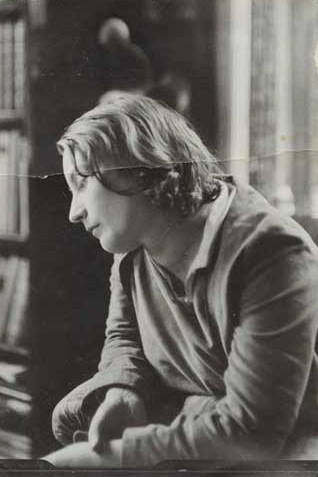
Helvi Hämäläinen. Photo: Literary Archives of the Finnish Literature Society.
This week, an excerpt from Helvi Hämäläinen’s gorgeously sensuous novel Säädyllinen murhenäytelmä (‘A respectable tragedy’,1941)
Right at the top of the list of untranslated Finnish masterpieces, for me, is Helvi Hämäläinen’s monumental Säädyllinen murhenäytelmä.
Written in the fateful summer of 1939, as the world waited for war, this story of love among the Helsinki intelligentsia is at the same time both a roman a clef – it caused a sensation on publication as the real people behind the fictional characters were recognised – and a vivid picture of its age. The falling cadences of its luxuriantly proliferating phrases offer a voluptuously aesthetic poetry of the senses as they slowly tell the story of love lost and then, gradually, regained. And the book answers the question, what was it like to be alive then?, with incomparable vividness. In this extract, the novelty of apartment living in the 1930s, the colours and smells, the new social habits, are all brought to life with extraordinary intensity.
We also republish a selection of poems published much later in Hämäläinen’s life, many of them impassioned elegies for the lives lost in the Second World War, giving voice to the sheer weight of sorrow, of grief for those who were lost.
If you’d like to read more, Soila Lehtonen’s evocative essay on Säädyllinen murhenäytelmä accompanies another excerpt; while a glimpse of its sequel, Kadotettu puutarha, (‘The lost garden’, 1995), follows the story onward to an elegiac description of the parts of Karelia that were ceded to the Soviet Union in the Second World War.
![]()
The Books from Finland digitisation project continues, with a total of 396 articles and book excerpts made available on our website so far. Each week, we bring a newly digitised text to your attention.
Leena Krohn: Erehdys [‘The mistake’]
8 June 2015 | Mini reviews, Reviews
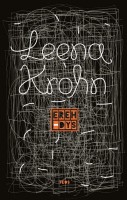 Leena Krohn
Leena Krohn
Erehdys [‘The mistake’]
Helsinki: Teos, 2015. 154 pp.
ISBN 978-951-851-575-6
€24.00, hardback
The protagonist of this new novel by Leena Krohn (born 1947) is an elderly author, E., who one dark and cold winter night arrives by car in a small town to perform in a literary event at a local library. The atmosphere does not seem very welcoming, and as the author begins reading extracts from his works, the comments and questions from the audience are mostly negative and impolite, even hostile. Gradually the sinisterness of the whole event becomes tragicomic; on leaving, the author has to fight his feelings of self-pity and anger. This novel frames E’s life in a portrait of a serious soul in constant pursuit of comprehending life – which he finally seems to acquire in death (in a car accident). The larger part of the novel consists of the stories the author reads; they will be familiar in style to fans of Krohn’s work. Unexpected, strange and unexplicable events and moments of everyday life take the characters by surprise; dreams, memories, remembering and forgetting what has taken place in the history – imagined or real – may perhaps change the way they have lived their lives.
Intelligent living
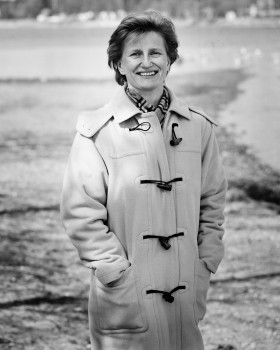
Minna Lindgren. Photo: Ville Palonen.
In Ehtoolehdon tuho [‘The decline of Twilight Grove’, Teos, 2015), the final novel in a trilogy about life in an assisted living home, employing human staff has become too expensive and the old folk are part of a pilot project in which they are cared for by electronic devices, monitors, cameras, ‘smartwalls’ and cleaning robots: ‘there was intelligence everywhere, masses of it, just a hiccup and something terribly intelligent would happen.’
The aged lady residents don’t like their new life, but they’re resilient; they’re not about to let the new technology defeat them…
Minna Lindgren’s mordantly satirical, often hilariously funny writing has earned her a wide readership. Translations of the trilogy are soon to appear in English, German and French.
![]()
An excerpt from Ehtoolehdon tuho [‘The decline of Twilight Grove’, Teos, 2015). Review by Soila Lehtonen
‘You’re 97 today! Your wakeup call service today congratulates!’
As if she wouldn’t have remembered. Ninety-seven was almost a hundred. She and Irma had decided that they would refuse to turn one hundred. It would only make trouble. One lady, in the bottom apartment of the A staircase, had received an invitation to the health centre on her birthday. Apparently all five-year-olds were called in for monitoring of their motor and psychological development, and when this lady turned 105, the computer system thought she was a toddler. The computer didn’t recognise numbers over one hundred. Siiri thought the lady should have kept the appointment; she would have done, for the tests were fun. You had to draw a triangle and walk along a straight line. Not that easy for someone of 105. But the lady didn’t go, she just made a terrible fuss about it and complained to everyone, until she died before her complaints reached the right official. More…
Minna Lindgren: Ehtoolehdon tuho [The downfall of Twilight Grove]
1 June 2015 | Mini reviews, Reviews
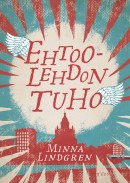 Minna Lindgren
Minna Lindgren
Ehtoolehdon tuho [The downfall of Twilight Grove]
Helsinki: Teos, 2015. 288pp.
ISBN 978-951-851-646-3
€29.90, paperback
This is the final novel in a trilogy by the writer and music editor Minna Lindgren (born 1963). The protagonists in Kuolema Ehtoolehdossa (‘Death in Twilight Grove’, 2013) were lively ninety-something ladies in an assisted living facility in Helsinki. Now their life is turning more and more satirically and grotesquely absurd: as employing human workforce is becoming too expensive for the owners of the facility, the old folks are being cared for by electronic devices, monitors, cameras, ’smartwalls’ and cleaning robots, and their food – tasteless but colourful paste – is dispensed from 3D vending machines. In addition to all this, the members of a devious religious group, in pursuit of any money that the inhabitants may still have, begin to manipulate them. Things are not looking good, but the resourceful ladies are not about to give in, even though one of them will peacefully – and considering her age, naturally – pass away (in her bed, holding her favourite book, Thomas Mann’s The Magic Mountain). Lindgren defends the human rights of her characters with gusto. No wonder, then, that the trilogy will shortly appear in several languages, including English, German and French.
A perfect storm
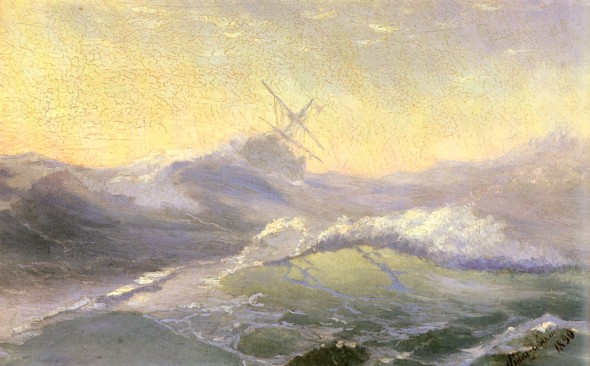
Bracing the waves. Ivan Aivazovsky, 1890.
According to Petri Tamminen, Finns are burdened by the need to succeed. Instead, he argues they should learn to fail better.
Part comedy, part tragedy, part picaresque novel, with a dash of Joseph Conrad – Tamminen’s new book, Meriromaani. Eräitä valoisia hetkiä merikapteeni Vilhelm Huurnan synkässä elämässä (‘A maritime novel. A few bright moments in Captain Vilhelm Huurna’s sombre life’, Otava, 2015) is set in an indeterminate seafaring past of the 18th or 19th century. It tells the story of the world’s most unsuccessful sea captain, Vilhelm Huurna who, one by one, sinks all the ships he commands.
Tamminen (born 1966) is a master of very short prose – this miniature novel is a a huge undertaking in the context of his work as a whole – and at Books from Finland we’re big fans. You can read more of his work here.
We join the story as Huurna, leaving behind him a failed romance in Viipuri, sets sail for Archangel, on the far north coast of Russia.
![]()
An excerpt from Meriromaani. Eräitä valoisia hetkiä merikapteeni Vilhelm Huurnan synkässä elämässä (‘A maritime novel. A few bright moments in Captain Vilhelm Huurna’s sombre life’, Otava, 2015)
The sun shone on the Arctic Ocean night and day, and the voyage went amazingly well, as did all the tasks and jobs that Huurna particularly feared beforehand.
Ships lay in Archangel harbour like objects on a collector’s shelf. They were waiting for timber cargo from the local sawmills where work was at a standstill because the mills lacked the machines and machine parts that they were now bringing them. When their cargo had been unloaded and the machines installed, timber began arriving from the sawmills. They found themselves at the end of the queue, and after the other ships had departed, one by one, they were still waiting in Archangel. That suited Huurna; in the first few days of his stay he had become acquainted with two English merchants and, through them, had received invitations to parties. He had stood in salons drinking toasts to the honour of this or that and made the acquaintance of some charming ladies into whose eyes he wished to gaze another time. He was quite moved by the whirl of this unexpected social life, and brightened at the thought that there was really nothing to complain about in his life apart from the fact that he happened still to be a bachelor. More…
Minna Lindgren: Ehtoolehdon pakolaiset [The refugees of Twilight Grove]
26 March 2015 | Mini reviews, Reviews
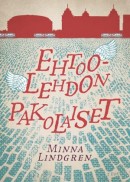 Ehtoolehdon pakolaiset
Ehtoolehdon pakolaiset
[The refugees of Twilight Grove]
Helsinki: Teos, 2014. 334 pp.
ISBN 978-951-851-584-8
€29.90, paperback
This is the second volume of a novel trilogy by the writer and music editor Minna Lindgren (born 1963). The protagonists in Kuolema Ehtoolehdossa (‘Death in Twilight Grove’, 2013) were ladies in their nineties in an assisted living facility in Helsinki – administered by a foundation entitled (ironically enough), ‘Care and Love of the Elderly‘. Lindgren’s ‘adventure satire’ continues to focus on the lack of common sense, respect and empathy (as well as presence or interest of relatives) in the – often patronising – care of the elderly. The story revolves round the evacuation of the inhabitants from the facility to temporary housing as a tragicomically huge renovation project sets off, not without some seriously fishy business. This volume might be described as a slightly more sombre in its themes than the previous one, as illnesses and death occur – however, the point is that dying, not an unexpected turn in a person’s life after the age of 90, should be regarded as something natural. As what Lindgren writes about is by no means a phenomenon foreign to contemporary western societies, it is not surprising that so far the translation rights of the trilogy into eight languages have been sold.
Hare-raising
13 February 2015 | Reviews
In this job, it’s a heart-lifting moment when you spot a new Finnish novel diplayed in prime position on a London bookshop table – and we’ve seen Tuomas Kyrö’s The Beggar & The Hare in not just one bookshop, but many. Popular among booksellers, then – and we’re guessing, readers – the book nevertheless seems in general to have remained beneath the radar of the critics and can therefore be termed a real word-of-mouth success. Kyrö (born 1974), a writer and cartoonist, is the author of the wildly popular Mielensäpahoittaja (‘Taking umbridge’) novels, about an 80-year-old curmudgeon who grumbles about practically everything. His new book – a story about a man and his rabbit, a satire of contemporary Finland – seems to found a warm welcome in Britain. Stephen Chan dissects its charm
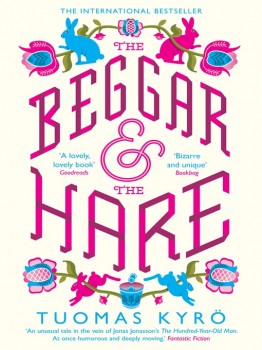 Tuomas Kyrö: The Beggar & The Hare
Tuomas Kyrö: The Beggar & The Hare
(translated by David McDuff. London: Short Books, 2011)
Kerjäläinen ja jänis (Helsinki: Siltala, 2011)
For someone who is not Finnish, but who has had a love affair with the country – not its beauties but its idiosyncratic masochisms; its melancholia and its perpetual silences; its concocted mythologies and histories; its one great composer, Sibelius, and its one great architect, Aalto; and the fact that Sibelius’s Finlandia, written for a country of snow and frozen lakes, should become the national anthem of the doomed state of Biafra, with thousands of doomed soldiers marching to its strains under the African sun – this book and its idiots and idiocies seemed to sum up everything about a country that can be profoundly moving, and profoundly stupid.
It’s an idiot book; its closest cousin is Voltaire’s Candide (1759). But, whereas Candide was both a comedic satire and a critique of the German philosopher and mathematician Gottfried Wilhelm Leibniz (1646-1716), The Beggar & The Hare is merely an insider’s self-satire. Someone who has not spent time in Finland would have no idea how to imagine the events of this book. Candide, too, deployed a foil for its eponymous hero, and that was Pangloss, the philosopher Leibniz himself in thin disguise. Together they traverse alien geographies and cultures, each given dimension by the other. More…
Archives open!
12 December 2014 | This 'n' that
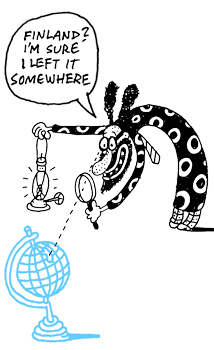
Illustration: Hannu Konttinen
For 41 years, from 1967 to 2008, Books from Finland was a printed journal. In 1976, after a decade of existence as not much more than a pamphlet, it began to expand: with more editorial staff and more pages, hundreds of Finnish books and authors were featured in the following decades.
Those texts remain archive treasures.
In 1998 Books from Finland went online, partially: we set up a website of our own, offering a few samples of text from each printed issue. In January 2009 Books from Finland became an online journal in its entirety, now accessible to everyone.
We then decided that we would digitise material from the printed volumes of 1976 to 2008: samples of fiction and related interviews, reviews, and articles should become part of the new website.
The process took a couple of years – thank you, diligent Finnish Literature Exchange (FILI) interns (and Johanna Sillanpää) : Claire Saint-Germain, Bruna di Pastena, Merethe Kristiansen, Franziska Fiebig, Saara Wille and Claire Dickenson! – and now it’s time to start publishing the results. We’re going to do so volume by volume, going backwards.
The first to go online was the fiction published in 2008: among the authors are the poets Tomi Kontio and Rakel Liehu and prose writers Helvi Hämäläinen (1907–1998), Sirpa Kähkönen, Maritta Lintunen, Arne Nevanlinna, Hagar Olsson (1893–1979), Juhani Peltonen (1941–1998) and Mika Waltari (1908–1979).
To introduce these new texts, we will feature a box on our website, entitled New from the archives, where links will take you to the new material. The digitised texts work in the same way as the rest of the posts, using the website’s search engine (although for technical reasons we have been unable to include all the original pictures).
![]()
By the time we reach the year 1976, there will be texts by more than 400 fiction authors on our website. We are proud and delighted that the printed treasures of past decades – the best of the Finnish literature published over the period – will be available to all readers of Books from Finland.
The small world of Finnish fiction will be even more accessible to the great English-speaking universe. Read on!
And the winner is… Finlandia Prize for Fiction 2014
27 November 2014 | In the news
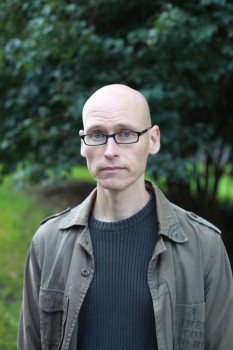
Jussi Valtonen. Photo: Markko Taina
The winner of the prize this year, worth €30,000 and awarded on 27 November, is He eivät tiedä mitä he tekevät (‘For they know not what they do’, Tammi) by Jussi Valtonen (born 1974), a psychologist and writer. The novel – 558 pages – is his third: it focuses on the relationship of science and ethics in the contemporary world, with an American professor of neuroscience, married to a Finn, as the protagonist.
Professor Anne Brunila – who has worked, among other posts, as a CEO in forest and energy industry – chose the winner. In her awarding speech she said: ‘The novel is an astonishing combination of perceptive description of human relationships, profound moral and ethical reasoning, science fiction and suspense…. I have never encountered a Finnish portrayal of our present era that is anything like it.’
The other five novels on the shortlist of six were the following:
Kaksi viatonta päivää (‘Two innocent days’, Gummerus) by Heidi Jaatinen is a story of a child whose parents are not able to take care of her; Olli Jalonen’s Miehiä ja ihmisiä (’Men and human beings’, Otava) focuses on a young man’s summer in the 1970s. Neljäntienristeys (‘The crossing of four roads’, WSOY), a first novel by Tommi Kinnunen, is a story set in the 20th-century Finnish countryside over three generations. Kultarinta (‘Goldbreast’, Gummerus) by Anni Kytömäki is a first novel about generations, set in the years between 1903 and 1937, celebrating the Finnish forest and untouched nature. Graniittimies (‘Granite man’, Otava) by Sirpa Kähkönen portrays a young, idealistic Finnish couple who move to the newly-founded Soviet Union to work in the utopia they believe in.
A long list of good novels
27 November 2014 | In the news
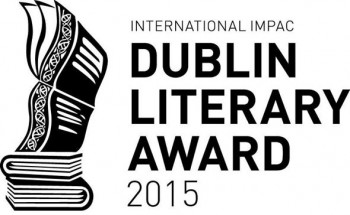 The longlist for the International IMPAC Dublin Literary Award 2015 has been announced and, among the 142 translated novels – from 39 countries and 16 original languages – are two from Finland.
The longlist for the International IMPAC Dublin Literary Award 2015 has been announced and, among the 142 translated novels – from 39 countries and 16 original languages – are two from Finland.
Mr Darwin’s Gardener by Kristina Carlson (Peirene Press, UK, 2012), a novel set in the 1860s England, is translated by Emily and Fleur Jeremiah (see the extracts in Books from Finland).
Cold Courage, a thriller by Pekka Hiltunen (Hesperus Press, UK), is translated by Owen Witesman. Both entries were nominated by Helsinki City Library.
Among the authors writing in English are Margaret Atwood, J.M. Coetzee, Roddy Doyle, Stephen King, Jhumpa Lahiri, Thomas Pynchon and Donna Tartt.
This literary award was established by Dublin City, Civic Charter in 1994. Nominations are made by libraries in capital and major cities throughout the world, on the basis of ‘high literary merit’. In order to be eligible for consideration in 2015 a novel translated into English must be first published in the original language between 1 January 2009 and 31 December 2013.
The award for a translated novel is worth €75,000 to the author, €25,000 to the translator. The shortlist of ten titles will be announced by an international panel of judges in April 2015, the winner in June.
We’ll be keeping our fingers crossed for our ex-Editor-in-Chief Kristina Carlson!
Year of the cat
13 November 2014 | Fiction, Prose
Extracts from the novel Kissani Jugoslavia (‘Yugoslavia, my cat’, Otava 2014). Introduction by Mervi Kantokorpi
I met the cat in a bar. And he wasn’t just any cat, the kind of cat that likes toy mice or climbing trees or feather dusters, not at all, but entirely different from any cat I’d ever met.
I noticed the cat across the dance floor, somewhere between two bar counters and behind a couple of turned backs. He loped contentedly from one place to the other, chatting to acquaintances in order to maintain a smooth, balanced social life. I had never seen anything so enchanting, so alluring. He was a perfect cat with black-and-white stripes. His soft fur gleamed in the dim lights of the bar as though it had just been greased, and he was standing, firm and upright, on his two muscular back paws.
Then the cat noticed me; he started smiling at me and I started smiling at him, and then he raised his front paw to the top button of his shirt, unbuttoned it and began walking towards me. More…
The day of mourning
6 November 2014 | Fiction, Prose
Extracts from the novel Katedraali (‘The cathedral’, Teos, 2014). Introduction by Mervi Kantokorpi
I am here now, at this funeral; I’m sitting on a puffy rococo chair which stands in the corner of this large living room – hall – on a Berber rug, one of a series of four pieces of furniture. The fourth is a curly-legged table, painted matt white. I wriggle like anything, trying to rid myself of my too-tight shoes. Fish thrash their tails in the same way. The lady in the dry cleaner’s told me she hates fish. She said that clothes that smell of fish and are brought into her shop make her shake with loathing but also bring her satisfaction because she can wash the awful stench away.
My shoes are impossibly small. They pinch my feet worse every moment. My back aches, too, despite the painkillers. You can’t swallow pills forever, so I just try to find a better position and put up with it. Finally my shoes leave my feet. I kick them underneath the table so that they can’t be seen. I can breathe again. In my shoes I felt as if I were sinking under the ground.
My father once showed me the Stephansdom catacombs. Thousands of people were buried here, before that, too, was forbidden by someone, he said. More…


